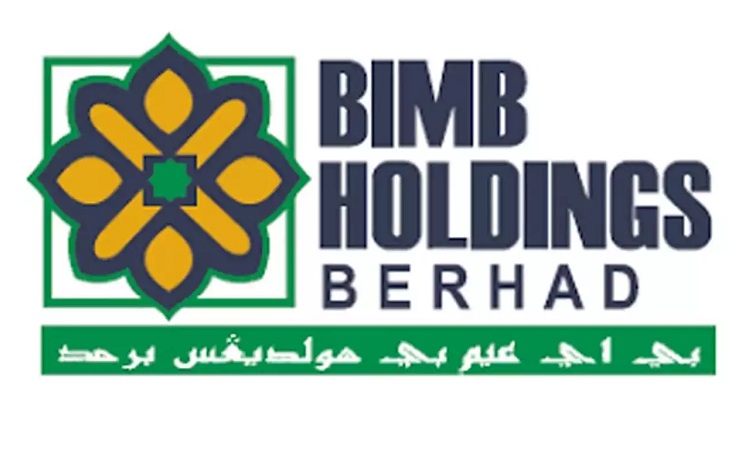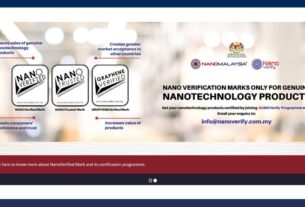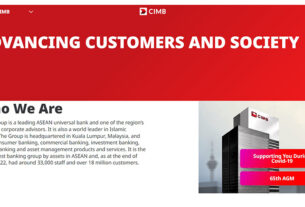BIMB Holdings Berhad (“BHB”) reported Group PBZT for the first quarter ended 31 March 2020 (“1Q20”) of RM321.8 million, representing an increase of 0.7% or RM2.2 million.
For the period under review, net profit attributable to shareholders rose 3.3% or RM6.7 million to RM209.2 million.
The Group registered an annualised after-tax Return on Equity (“ROE”) of 14.6%. Consequently, net assets per share have also improved to RM3.40 as at 31 March 2020 compared to RM3.34 as of 31 December 2019.
Islamic Banking
Bank Islam Group (“Bank Islam” or “the Bank”) achieved a PBZT of RM221.5 million for the 1Q20, an increase of 0.8% over the corresponding period in 2019. The improved performance was mainly attributed to growth in business activities.
Year-on-year (“Y-o-Y”) net financing assets grew RM4.4 billion or 9.5% to reach RM50.4 billion as at the end of March 2020. On the contrary, lower fund-based income was reported due to multiple downward revisions made on Overnight Profit Rate from 3.25% in the previous corresponding period to 2.50% for the 1Q20.
As at the end of March 2020, customer deposits and investment accounts stood at RM55.5 billion with a Y-o-Y increase by RM1.7 billion or 3.1%. Total current and saving accounts and transactional investment accounts (“CASATIA”) composition is at a healthy level of 35.9% of total customer deposits and investment accounts.
Total gross impaired financing as at 31 March 2020 was RM427.1 million compared to RM443.4 million as of 31 March 2019.
The Bank’s capital position also remained healthy to support continuous business growth with a Total Capital Ratio of 19.3% as of 31 March 2020.
The Malaysian banking sector is expected to face a very challenging operating environment, following the COVID-19 pandemic, and the ongoing Movement Control Order, amidst volatile crude oil prices. Asset quality may be dented, driven by impairments of financing. Nevertheless, BNM relief plan of six (6) month moratorium on financing repayment will soften the near-term credit negative impact on asset quality. Banks’ capitalisation will be stable as weaker financing growth will limit the expansion of risk-weighted assets. Banks will continue to hold sufficient liquidity to withstand liquidity shock while higher credit costs and narrower margins will pressure Banks’ profitability. At the same time, continued investment in digital transformation will drive up operating costs.
Moreover, BNM had already cut the Overnight Policy Rate (“OPR”) three times this year by 25 basis points (“bps”) in January, another 25 bps in March, and further cut by 50 bps in May, reducing the OPR to 2.00%. These rate cuts totalling 100 bps in the first half of 2020 will put a squeeze in banks’ net income margin and overall profitability. In addition, the six (6) months moratorium on financing repayment will result in a one-off provision in line with MFRS 9 to be absorbed by banks. Nonetheless, the rate cuts and moratorium on financing repayment are aimed to cushion the adverse effects of COVID-19 on the economy. Sturdy capital buffers held by Banks together with sound capital adequacy, liquidity and risk management standards for financial institutions, will strengthen the overall resilience of the financial system.
In this time of need, Bank Islam is cognisant of the multi-faceted challenges to our valued customers. With Customer Centricity in mind, our Rescheduling & Restructuring (“R&R”) facility is one of the Bank’s initiatives to provide financial assistance to our customers, encompassing all individuals and businesses. The programme is targeted to assist our unfortunate customers who require financial relief. Under this initiative, customers are allowed to pay lower monthly repayment hence allowing customers to manage their cash flow better. The Bank is also implementing SME Special Relief Facility (“SSRF”) to help alleviate the short-term cash flow predicament faced by SMEs. This initiative is to help bridge the sustenance of Real Economy, by preserving jobs and ensuring continued economic activity during this period of volatility. Additionally, in our efforts to help preserve and sustain economic empowerment and wealth of our valued customers, Bank Islam is offering “SME-iGain”, a transactional current investment account (“TCIA”) which gives up to 2.0% return to SME customers, made available until June 2020. As the number of new cases for COVID-19 has been levelling off, there is hope that the reopening of the economy could happen, leading to a possible turnaround in the economic activities.
With Sustainable Prosperity not just for the Bank but for all our communities as the overarching theme in the Bank’s strategic direction, the Bank has adopted Value-based Intermediation (“VBI”) at the heart of its business model. Bank Islam is aligning its measures in accordance with BNM’s guidelines, which place emphasis on protecting consumers’ financial viability, sustaining real economy, focusing on affordable investing and continue to support the frontline workers and underprivileged communities. The Bank’s initiatives further reflect our commitment towards financial inclusivity, which ensures development for all and that no one is left behind as we seek to build towards a peaceful and dignified nation.
Takaful
Syarikat Takaful Malaysia Keluarga Berhad (“Takaful Malaysia”) recorded a PBZT of RM114.2 million for 1Q20, higher as compared to RM113.3 million in 1Q19. The increase in profit was mainly attributable to lower expense reserves which in line with the lower productions from group medical products.
Takaful Malaysia recorded an operating revenue of RM913.0 million for 1Q20, lower as compared to RM918.2 million in 1Q19. The decrease was mainly attributable to lower sales generated from the Family Takaful business.
Family Takaful business generated gross earned contributions of RM496.3 million for 1Q20, lower as compared to RM502.9 million in the corresponding period last year due to lower sales from employee benefits products. For 1Q20, General Takaful business also recorded a lower gross earned contributions of RM202.0 million compared to RM204.2 million in 1Q19 and was mainly attributable to fire and motor classes.
Despite business sentiments remaining cautious in 2020, the Takaful industry is expected to outperform the conventional insurers in view of the strong demand for Takaful products. To sustain its market-leading position, the company will continue with its innovative strategies via the implementation of its digital strategy, the introduction of online solutions, expansion of its distribution capabilities, strategic partnerships with leading Islamic banks and Brand awareness initiatives.
To support business growth and customer-centricity, the company will continue its digital strategy to build the full digital ecosystem. As a pioneer to transform the insurance / Takaful business in Malaysia, we will advance to the next level of digital strategy by adopting Artificial Intelligence (“AI”) with big data analytics and machine learning algorithms to manage the risks and opportunities in the areas of marketing, underwriting, and customer service, and claims processing. Especially, AI will be used for marketing optimisation to achieve better brand awareness and marketing objectives, smart underwriting for fast risk assessment and accurate pricing decision, personalisation of customer engagement for great customer experience, and motor and medical claims review process for faster and accurate claim settlement and fraud detection.
However, the COVID-19 pandemic and associated economic impact are posing huge challenges and raising many uncertainties. Takaful Malaysia is prepared for a very different market and operating landscape post MCO period as concerns on job security remain heightened, and consumers will be more cautious on their spending. It is expected that economic activities will take some time to recover.




